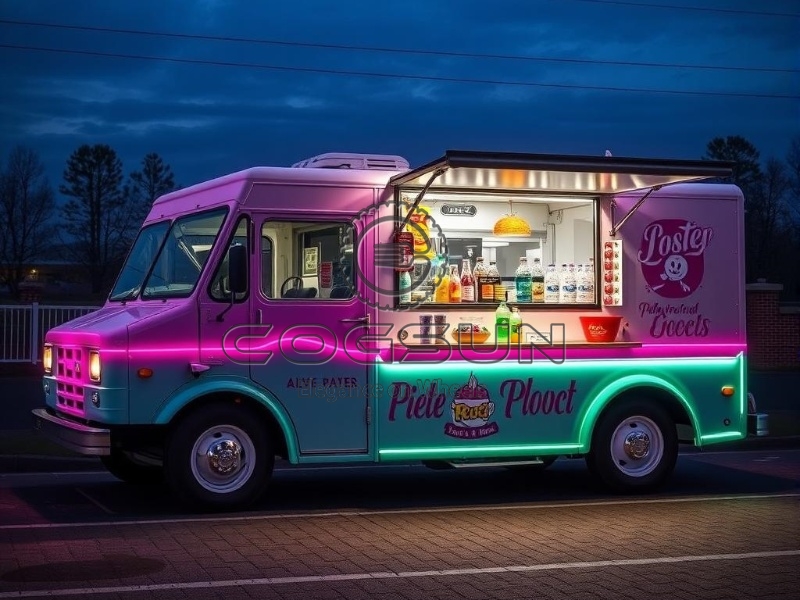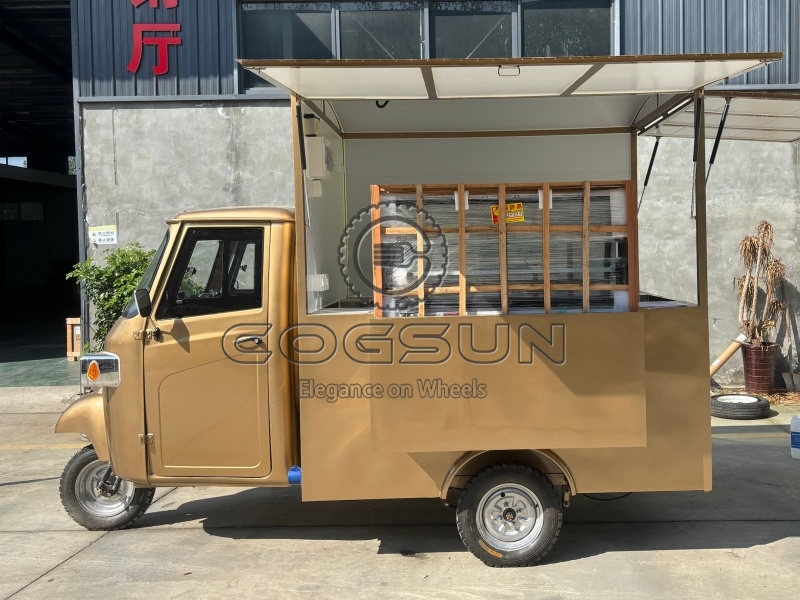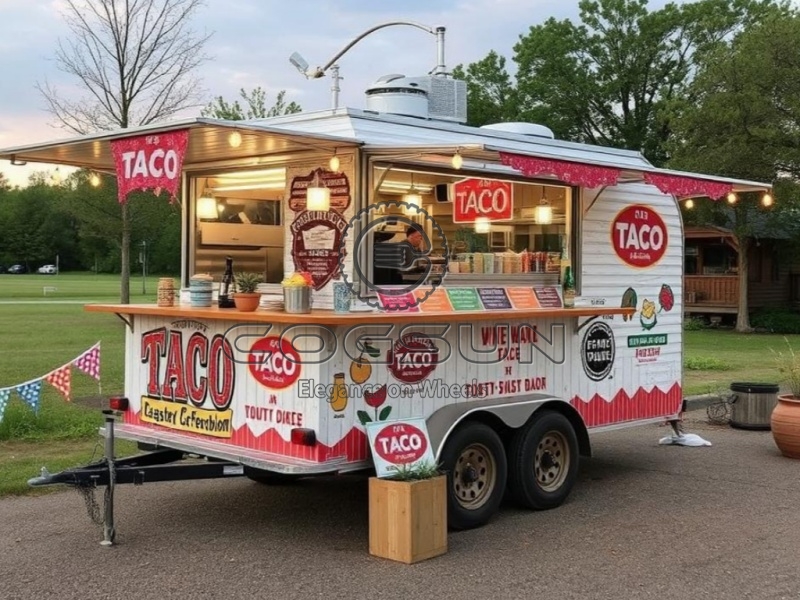Electric food trucks stand out for their streamlined design and eco-friendly logos. Their bodies are typically constructed of lightweight materials and feature solar panels or eye-catching electric signage, highlighting their green credentials. They operate in city centers, commercial districts, campuses, and at event venues, creating a vibrant and modern experience that blends technology with a touch of everyday life. Whether selling artisanal coffee, creative burgers, or international cuisine, electric food trucks deliver fresh, non-polluting food to consumers.

Features
- Zero emissions, low noise: Electric food trucks completely eschew traditional fuel engines in favor of lithium batteries or hydrogen fuel cells, achieving zero carbon emissions during operation. Furthermore, the electric motor significantly reduces noise pollution, making them particularly suitable for environmentally sensitive locations such as residential areas and campuses.
- Low operating costs: Electricity costs are significantly lower than fuel, and electric food trucks are simple to construct and require minimal maintenance, significantly reducing operating expenses over the long term. Some trucks also feature energy recovery systems for further energy savings.
- Intelligent design: Integrated IoT technology enables real-time monitoring of battery status, equipment operation, and inventory levels, and even allows for remote ordering via an app. Some high-end models are also equipped with an automatic navigation system to optimize driving routes and improve operational efficiency.
- Modular Space: The interior layout is flexible, allowing cooking equipment to be quickly adjusted according to dish requirements, supporting a wide range of operations from fast food to fine dining.
Interior Equipment
- Electric Cooking System: Induction cooktops, electric grills, electric steamers, and other flameless appliances are both safe and efficient. Some models also feature rapid heating technology to shorten food delivery times.
- Smart Temperature Control Refrigerator/Freezer: Precisely controls food storage temperature to ensure freshness, while also featuring energy-saving designs to reduce electricity consumption.
- Integrated Water Recycling System: Equipped with a small water purifier and wastewater recycling unit, it supports basic cleaning needs. Some models even recycle water resources.
- Eco-Friendly Packaging and Payment Terminal: Biodegradable tableware is provided, and integrated mobile payment and QR code ordering functions enhance the customer experience.
- Solar Power Supply: Rooftop solar panels can provide additional power for interior lighting, electronic devices, and other equipment, extending driving time.
Application
- City Streets and Business Districts: As an upgraded version of traditional food trucks, electric food trucks offer convenient dining in busy areas, attracting young consumers while minimizing disruption to the surrounding environment.
- Campuses and Office Areas: Their low noise levels make them an ideal choice for locations around campuses and office buildings, meeting the needs of students, faculty, and office workers for quick meals.
- Music Festivals and Sporting Events: At large-scale events, electric food trucks can be quickly deployed to provide diverse catering services while avoiding the potential safety hazards associated with gasoline-powered food trucks.
- Ecological Tourism Areas and Parks: Their zero-emissions capabilities allow them to seamlessly integrate into natural landscapes, providing visitors with delicious food while protecting the environment.
- Disaster Response: Some countries have begun piloting the use of electric food trucks in disaster relief efforts, leveraging their independent power supply to provide hot meals to affected areas.




